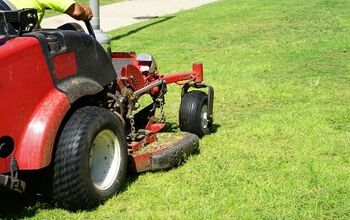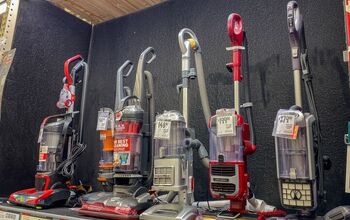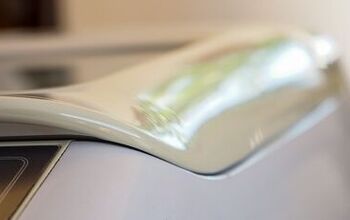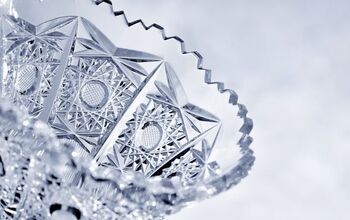How To Prevent Water Spots On A Stainless Steel Sink

Stainless steel sinks are a lovely addition to your kitchen area or washroom. They are usually very clean and sharp-looking. Stainless steel sinks provide an industrial look that is still polished enough for any decor.
There is one downside to stainless steel sinks, water stains. These stains can distract from the polished look of the stainless steel sink. It is vital to keep them clean to prevent these spots from staining your sink.
To prevent water spots on a stainless steel sink, use vinegar or lemon juice and wipe the sink with a cloth or a sponge. Cleaning in the same manner with olive oil is another way to prevent water spots. You can also add baking soda to the first mix but letting it soak first is the key. Rinse off the residue with a wet sponge afterward. Use caution when using non-natural cleaners and dilute them with olive oil.
Should I Be Worried About the Stains?
The short answer is no. The stains are expected for an area that encounters a lot of water. These stains are typical but more apparent on materials like stainless steel.
Because of the reflective surface of the stainless steel, the spots may appear more prominent, but they can be cleaned. Some spots might remain, but it is possible to clean them with a bit of elbow grease. You can use products already in your house and safe for your stainless steel sink in many cases.
Preventing the Stains
These spots can be removed, but it is crucial to continue to clean them to prevent them from permanently staining. You can remove the stains regularly through the cleaning processes listed below.
If you can do this, it will help make it easier to keep the spots away. Not doing so can build up and cause stains that you will not remove. It is possible to stain the stainless steel with water spots forever if the water is hard.
Having a Water Softener
One way to prevent the stains before you have to clean them is to use a water softener. This will help to prevent the water stains that usually occur after exposure to hard water. Hard water can cause build-up and ruin the vanity of the sink.
If you use a water softener, it can soften the water and will not have as many spots to treat. If you do not have as many spots, it will be easier to use natural agents. It will not expose your food area to harsh chemical agents.
3 Simple Techniques to Preventing Water Spots on Stainless Steel Sinks
Below are some techniques that can be of assistance when cleaning and removing water spots. If the spots have not been there for too long, these techniques should do the trick.
Method 1 1: Use Vinegar or Lemon Juice
One of the ways to clean is using vinegar or lemon juice. These techniques work because of the acidity that is in these two products. Vinegar or lemon juice helps break down the build-up that is in the stains on the stainless steel sink.
Step 1: Rinse the Sink and Add Vinegar or Lemon JuiceYou must rinse the sink with water and remove any objects like dishes from the sink. Once the sink has been rinsed and cleaned, add the vinegar or lemon juice. Make sure that you coat the sink.
If you use vinegar, the substance will bubble and fizz. That is perfectly normal, and it is safe. It just means that the vinegar is reacting with scum on the sink and cleaning.
Step 2: Add the Baking Soda for Extra CleanlinessOnce it is done bubbling, add baking soda to the area. This will also fizz and bubble. It is safe as it is reacting to vinegar and hard water stains.
Step 3: Use a Wet Sponge to Finish CleaningTo finish this technique, take a soft sponge and scrub the sink. This will remove the rest of the hard water stains. It will also remove the vinegar, lemon, juice, and baking soda.
Method 2: Use Olive Oil to Remove Stains
Another technique that utilizes natural ingredients is using olive oil. Most people do not think of olive oil as a cleaning agent, but it can help clean up hard water stains.
Step 1: Apply the Olive Oil with a Paper TowelIf you put olive oil on a paper towel and make sure that you soak it through, you can use it to clean. Take the olive oil-soaked paper towel and rub it around the sink. This will also help break down the hard water stains without using any chemicals. It is something that is probably already in your kitchen.
It is an easy way to make sure that you keep your stainless steel sink clean. It is also using something that is not chemically based and keeps food safe.
Step 2: Clean Up the Olive Oil and Water StainsUse a warm wet sponge to clean off the olive oil. Since the oil will stick to the sink, it is vital to scrub vigorously. Give one final pass with a clean cloth to ensure all of the olive oil is removed.
Method 3: Citrus Peel
The first method is a good choice, but sometimes it is essential to make sure that you get rid of every hard water stain. If you do not, then the hard water build-up can require more effort to remove.
Step 1: Use a Lemon or Orange Peel to Add ProtectionTake a lemon peel or an orange peel, rub it along the sides and bottom of the sink. This will help to make sure that the hard water stains are gone and adequately cleaned.
The acidity that is in the lemon or orange peel is what helps to make this work. In addition, you can use the rest of the lemon or orange for anything that you might need in your kitchen. It will also deodorize your sink and make the sink look like it did when it was new.
Step 2: Clean Off the Acidity ResidueIf you use this method, you need to make sure that the sink is buffed with a paper towel and olive oil. This will help remove and soothe any excess acidity to damage your stainless steel sink quality.
This method usually keeps the sink clean and fresh for a couple of weeks before it will need another treatment.
Valuable Information When Using Non-Natural Cleaners
In addition to the natural ways that can clean the stainless steel sink, you can use an abrasive cleaner. It will still require some biological agents like olive oil to soothe the abrasive agent. You do not want to compromise the durability of your stainless steel sink.
One tip that many of these cleaning agents provide is not to use rubber mats at the bottom of your sink. It can cause moisture to accumulate and level watermarks or stains on your sink. Most of these can be removed, but you must clean regularly.
Never leave bleach or complex chemicals sitting in the bottom of your sink. It can damage the sink and leave even worse stains than the water spots that you are trying to clean.
Related Questions
Do stainless steel sinks rust?
Stainless steel sinks do not rust, but they may appear to be deteriorating. Rust-looking stains are usually not a sign of sink deterioration. They are just superficial deposits on the surface of the sink.Make sure to clean your sink in the same direction as the grain lines of the finish. Scratches and swirls will appear and are permanent if not done correctly.
What chemicals should I not use on my stainless steel sink?
Listed are chemicals that you should never use on stainless steel sinks. Doing so may cause permanent and irreversible damage.
- Construction chemicals
- Solvents
- Household cleaners that contain chlorides and acids
- Chlorine bleach (chloride)
- Muriatic acid
- Plumbing PVC solvents
If a dangerous chemical gets on the sink, wash it immediately with water. You should rinse the sink well and dry it with a towel or paper towels.
These facts are true for kitchen stainless steel sinks. It is imperative to know what you are putting on your sink.
What is the comparison between using olive oil, vinegar, or lemon juice?These techniques are excellent ways to keep your kitchen and your stainless steel sink clean. They all assist in avoiding tough hard water stains. They are all naturally based and will not introduce new chemicals into your sink.
This means that there will not be any cross-contamination of chemicals that might damage your dishes or get into your food. The method involving vinegar or lemon juice and baking soda will require more time to soak to clean.
Olive oil usually can be cleaned and rinsed quicker as it uses more elbow grease rather than soaking. Either option is a good choice, but it depends on what works the best for you and your kitchen.

We are a team of passionate homeowners, home improvement pros, and DIY enthusiasts who enjoy sharing home improvement, housekeeping, decorating, and more with other homeowners! Whether you're looking for a step-by-step guide on fixing an appliance or the cost of installing a fence, we've here to help.
More by Upgraded Home Team











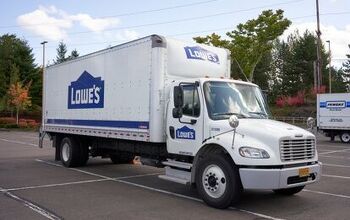
![10 Best Cordless Leaf Blowers – [2022 Reviews & Ultimate Guide]](https://cdn-fastly.upgradedhome.com/media/2023/07/31/9070789/10-best-cordless-leaf-blowers-2022-reviews-ultimate-guide.jpg?size=350x220)

